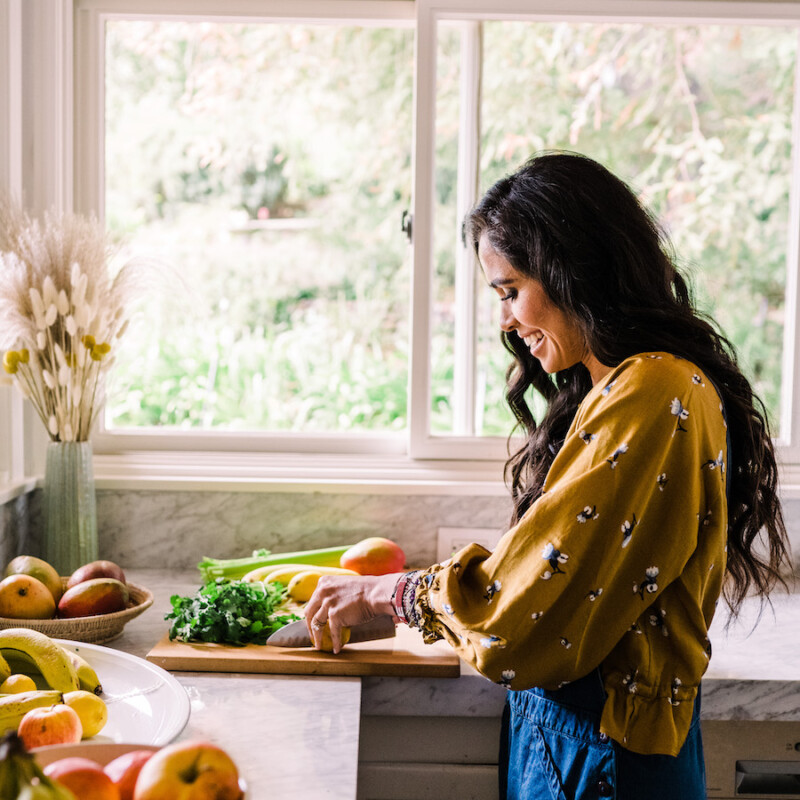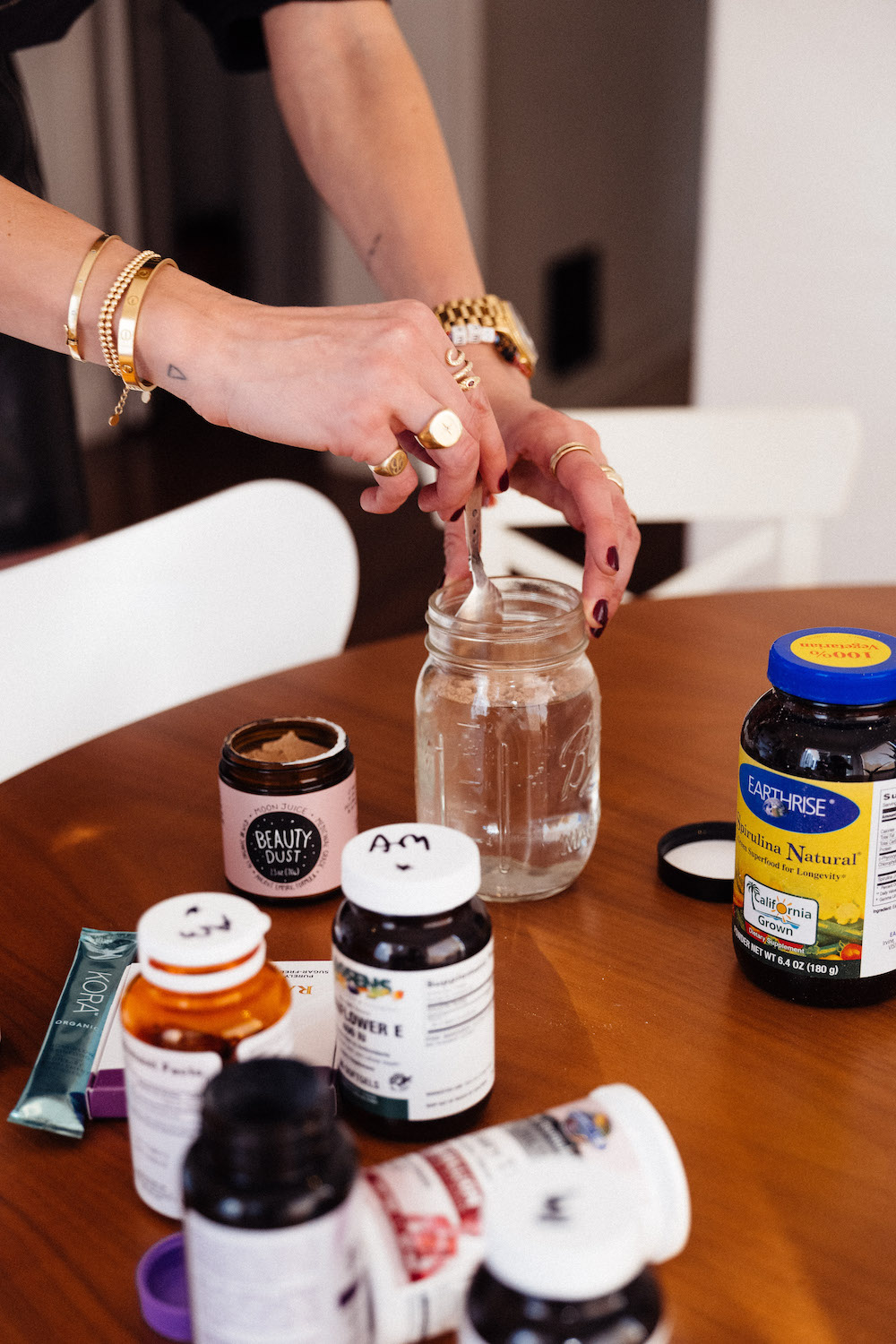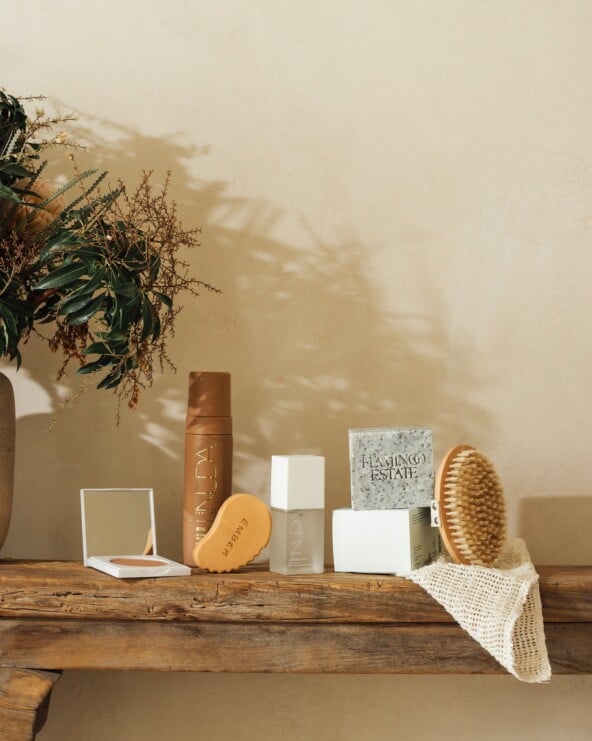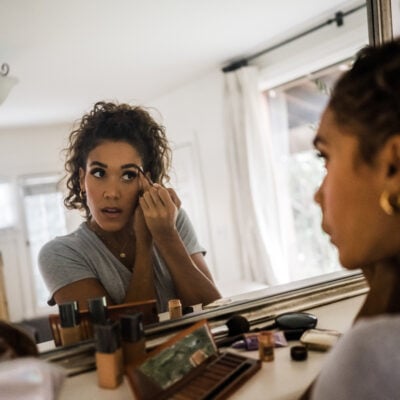Stroll down the vitamin aisle in most grocery stores, and you’re bound to find supplements touting longer, stronger, and healthier hair. Qualities we all want, right? However, it’s important to know which hair vitamins actually work (we put together our tried-and-true list!) and which don’t. After all, not all hair supplements are created equal. So in our quest to find out which ones actually drive results, let’s chat about biotin. Does biotin live up to its hype? Is it the magic fix that beauty supplements market? Whether your hair is feeling thin, nails feel brittle, or your skin lacks glow, biotin seems to do it all. But if you’ve ever taken biotin for hair and noticed little difference, you might be wondering if your bottle is a capsule of lies. Today, we’re breaking down the biotin benefits for hair, what it is, its efficacy, and if it’s worth adding to your supplement routine.
What Is Biotin, Exactly?
Biotin is one of the eight B-complex vitamins. Simply put, it helps convert food into energy. In fact, all B vitamins help the body convert food into fuel. Your body needs biotin in order to metabolize carbohydrates, fats, and amino acids (the building blocks of protein). Like other B vitamins—we’re talking about you, vitamin B-12)—biotin is necessary. It plays an important role in the health of your hair, skin, and nails too.
How Much Biotin Do I Need?
Like other B vitamins, biotin is water-soluble, so any extra biotin you consume will simply pass through your body when you urinate. Daily, between 30-100 mcg per day of biotin is recommended. Most people get the daily recommended amount of biotin from eating a healthy diet. You’ll find traces of biotin in organ meats, eggs, milk, and certain vegetables. That said, adding in a biotin supplement has no known toxicity symptoms associated with supplementing too much.

Biotin and Hair Growth—What Does the Science Say?
One thing is for certain: Biotin is specifically involved in the infrastructure of keratin, and keratin is a protein found in hair, skin, and nails. Right off the bat, there is a direct correlation between biotin and the health of your hair. Furthermore, studies show that being deficient in biotin can cause symptoms like thinning hair, skin rashes, and brittle nails. Furthermore, research also indicates that biotin supplements can improve hair and nails for those who don’t have enough biotin to begin with.
All of that said, the National Institutes of Health reports that there is still insufficient evidence to provide the efficacy of a biotin supplement (for those who aren’t deficient). The jury may still be out about its ability to deliver scientifically-proven results, but reviews on popular biotin supplements say otherwise. At any rate, biotin is considered harmless if you take more than the RDA.
What Are Biotin’s Potential Side Effects?
As with most supplements, taking too much biotin can cause unwanted side effects. Issues include skin rashes, digestive upset, problems with insulin release, and more. Acne is another possible side effect. If you notice more breakouts than usual after taking high doses of biotin, you may want to scale back.
There isn’t a proven link between biotin and acne breakouts, but this micronutrient can reduce your body’s absorption of other nutrients (including ones that naturally help your body combat acne). In essence, it’s not so much that biotin causes acne, it’s that it prevents your body from assimilating other nutrients that normally help counteract the effects of acne, like zinc and antioxidants.
What Ingredients Should I Look for in My Hair Growth Vitamin?
When it comes to choosing the right hair growth vitamin, quality matters. The right hair growth vitamins can help nourish your hair from the inside out, resulting in a faster growth rate and thicker, more nourished strands. An effective supplement can improve the length and condition of your hair, and as an added bonus, it can also improve your nails and skin as well.
When it comes to choosing the best hair growth supplement, you want to look for these key ingredients: Vitamin A, B vitamins, vitamin C, vitamin D, vitamin E, iron, and zinc. Vitamin A is necessary for cell growth, and since hair has some of the most quickly replicating cells on the body, hair needs adequate levels of vitamin A. Vitamins B6, B7, and B12 are especially important for hair health. Yes, that includes biotin. Our bodies need vitamin C to create collagen (a protein), and vitamin D may help with the creation of new hair follicles.
Like vitamin C, vitamin E is a potent antioxidant. Vitamin E helps block free radicals at the hair follicle level, potentially helping maintain healthy locks in the long run. Adequate iron levels are necessary for hemoglobin production, and hemoglobin is required to deliver oxygen to your hair follicle cells. Therefore, iron is crucial for hair health. Last but not least, zinc. Research shows that zinc is a potential inhibitor of hair follicle regression, meaning that it plays a role in hair growth.
10 Foods Rich in Biotin
If you’d rather not go the supplement route, there are plenty of foods that are rich in biotin. As mentioned, a biotin deficiency is rare, and most people can get all they need by eating a varied diet. The top 10 biotin-rich foods include:
- Beef liver—3 ounces provides 30.8 micrograms of biotin, which is 103% of your daily value
- Egg yolks—a whole, cooked egg (50 grams) provides approximately 10 mcg of biotin
- Lentils—3/4 cup of lentils contain 23 mcg of biotin
- Almond—1/4 cup of roasted almonds contains 1.5 mcg of biotin.
- Whole soybeans—3/4 cup of whole soybeans contain 9.3 mcg of biotin
- Sweet potatoes—1/2 cup of sweet potato contains 2.4mcg of biotin
- Mushrooms—1 cup (70-gram) serving of chopped, fresh button mushrooms contains 5.6 mcg of biotin
- Sunflower seeds—1/4 cup of roasted sunflower seeds contains 2.6 mcg of biotin
- Broccoli—1 cup of broccoli contains almost 1 mcg of biotin
- Avocados—one medium avocado contains at least 2 mcg of biotin
All of these ingredients are rich in B-complex vitamins, along with other essential micro and macro-nutrients like protein, healthy fats, carbohydrates, iron, phosphorus, and magnesium. This mushroom, spinach, and goat cheese fritatta is packed with biotin. Who knew your favorite weekend breakfast was loaded with ingredients to strengthen your hair, skin, and nails.







